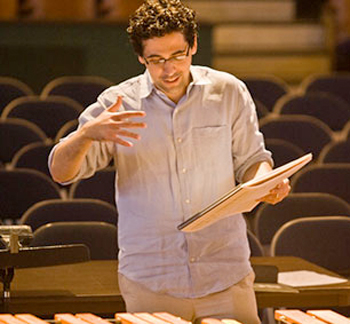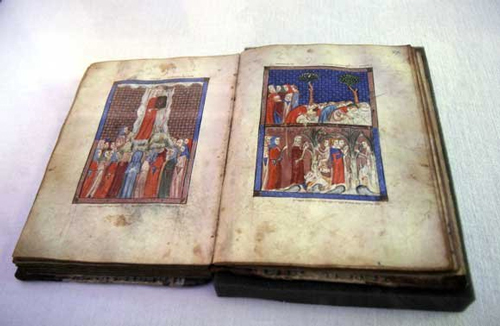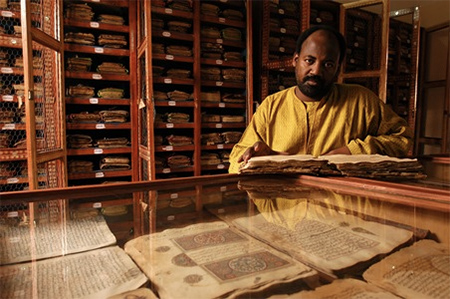by Jarrett Hoffman

This week, CityMusic Cleveland will present a series of concerts aiming to unite the Jewish and Arab communities, promote togetherness in Greater Cleveland, and emphasize the value of preserving the arts, regardless of culture. Titled “Two Faiths: One Spirit,” the series was inspired by stories of priceless religious texts that were rescued by people of other faiths.
Six free performances run from March 14-18 in Beachwood, Cleveland, Parma, Lakewood, and Elyria (see our Concert Listings for times and locations).
Needless to say, the series’ goal of unity means a lot to Dorman. He dashed any notion of an inherent conflict between Jewish and Arab peoples, noting that Jews were well-incorporated into Muslim societies for many years. “I think it’s much more of a political problem, a power issue,” he said. “That’s obviously very serious, but underneath I think there’s some unity. And the more we can uncover it, perhaps the political issues can be discussed more fruitfully.”
Among art forms, Dorman finds that music tends to be sidelined when it comes to politics. “I think this will be a beautiful way for music to be the voice of positivity and hope,” he said.
The musical centerpiece of the series is Merima Ključo’s Sarajevo Haggadah: Music of the Book, featuring the Bosnian-born composer on solo accordion. The work will receive its world premiere in Ključo’s new orchestrated version commissioned by CityMusic Cleveland.
Dorman said of Ključo, “There’s something very immediate and expressive about her voice, both as a player and as a composer. It grabs you right away — it’s not tempered by anything. I really like that.”

Dorman said that CityMusic executive director Eugenie Strauss heard Ključo perform the chamber version of the piece in November of 2015 at the Cleveland Museum of Art. “Eugenie was excited about it right away. She had this idea of finding a parallel to the story on the Muslim side.”

For musical counterparts to the Ključo, CityMusic programmed composers whose roots extend across the Middle East. Dorman said he immediately thought of the Elegy for Strings by his own composition teacher, Josef Bardanashvili.
“He came to Israel from the Republic of Georgia,” Dorman said. “This is a short piece, but with immense gravitas. It has that Middle Eastern flavor where you can’t tell — is it Jewish, or is it Arabic? Those lines are not as clear as a lot of people might think.”
Dorman described Behzad Ranjbaran’s Seven Passages as colorful and over-the-top, in the vein of Rimsky-Korsakov and Ravel. “It has this Persian, One Thousand and One Nights flavor to it.”
According to the conductor, the most authentically Arabic work will be Tom Cohen’s Warzazat, which calls for the oud and qanun, among other Middle Eastern folk instruments. “He’s a young Jewish composer living in Israel, but he runs a bunch of Andalusian orchestras, meaning they are traditional Arabic orchestras.”
Kareem Roustom wrote Dabke for the Kronos Quartet before orchestrating it for strings. “He’s Syrian and lives in the United States — a wonderful composer who writes a lot of film music. This is just a marvelous Syrian dance, and very virtuosic.”
Dorman summed up the program as a walk through many cultures whose music is not often heard in America. “All the pieces are magnificently beautiful in their own way. I hope people are intrigued enough to come hear this music.”
Published on ClevelandClassical.com March 12, 2018.
Click here for a printable copy of this article


